For landlords managing rental or social housing stock, specifying double glazed windows is no longer a ‘nice to have,’ it’s a necessity. A new double glazed window offers more than aesthetic appeal, it enhances thermal performance, lowers long‑term maintenance costs, boosts tenant health and safety, and protects property value. Here, we explore how double glazing addresses energy efficiency, damp and mould risks, noise reduction, fire performance and regulatory compliance, and why landlords should make it a priority when installing or replacing windows in their properties.
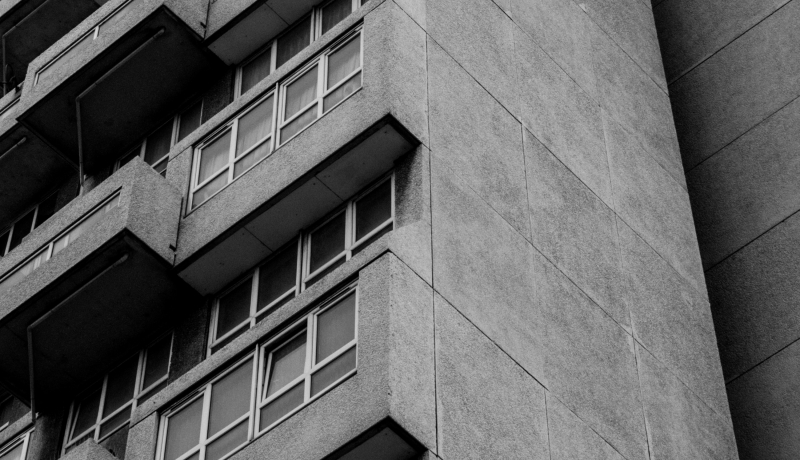
Why double glazing matters to landlords
Landlords are under increasing pressure from tenants, regulation and energy costs. Double glazing helps by:
- Reducing heat loss and lowering energy bills
- Minimising cold spots that cause internal condensation, mould and damp
- Cutting external noise infiltration
- Improving fire safety relative to single glazing
- Increasing property value and tenant satisfaction
- Reducing long‑term repair and maintenance demands
Let’s look at each in turn.
How double glazed windows cut energy consumption
When a property has single glazing or just a single pane of glass, that window becomes a weak point. Warm air escapes, cold air seeps in, and central heating runs harder to maintain comfort.
The difference with a double pane of glass is that you now have two layers of glass separated by a small gap filled with air or a more effective inert gas such as argon gas. That space dramatically impedes heat transfer, lowering heat loss through the window.
To optimise thermal insulation and thermal performance, high‑quality double glazing windows uses low‑emissivity coatings, spacer bars, proper seals and gas fills. The result: less reliance on central heating, lower heating bills, and better control of room temperature.
From a regulatory perspective, new windows should meet the U‑value threshold of 1.4 W/m²K under current Building Regulations (Approved Document L). If your replacement windows fail this, you risk noncompliance or penalties.

Preventing damp, mould and unhealthy living conditions
One of the strongest arguments for double glazing in rental housing is the health impact of damp and mould. Excess moisture, condensation and cold surfaces are triggers for mould growth, and mould is not just an aesthetic problem. Exposure to damp and mould increases the risk of asthma, wheezing and respiratory problems.
By keeping the interior pane of glass warmer, a properly sealed insulated glass unit reduces internal condensation. Condensation often forms when cold surfaces cause warm, moist warm air to deposit moisture. With double glazing, the internal pane is closer to room temperature, so moisture is less likely to condense on it.
Less condensation means less damp, less mould, fewer tenant complaints and lower risk of regulatory or health liability. In social housing, the Regulator of Social Housing emphasises prompt action on damp and mould and expects landlords to maintain robust processes and remediation.

Noise reduction and tenant comfort
Properties located in noisy environments, near roads, railway lines or busy streets, often struggle to attract and retain tenants. Double glazed windows significantly reduce external noise infiltration because the two panes of glass and the gas/air gap act as a sound barrier.
Better sound insulation improves tenant comfort and satisfaction, which in turn reduces tenant turnover and associated relet costs.
Safety and structural performance
While double glazing is often thought of for thermal efficiency, it also contributes to improved safety when compared to single glazing. A single pane of glass may fail or shatter more readily under fire stress or impact. Properly designed insulated glass units used in double glazing installations can provide better resistance and structural integrity.
Moreover, by minimising cold bridging, preventing moisture ingress, and maintaining window frames in good condition, double glazing helps preserve the performance of fire doors and escape routes adjacent to windows.
Meeting regulatory and landlord obligations

Landlords must ensure that any new windows comply with building regulations and rental property standards. The UK’s Building Regulations govern issues such as thermal efficiency, ventilation, safety glazing, and fire escape.
By specifying high‑quality double glazed window systems and working with Shelforce, landlords ensure their investment meets regulation, supports strong energy ratings, and reduces compliance risk.
Controlling long‑term costs and preserving property value
Replacing windows may feel like a capital expense, but double glazing offers lifetime value:
- Good thermal insulation reduces heating bills year after year
- Lower maintenance: well-sealed units resist warping, seal failure or frame decay
- Fewer tenant complaints and callouts
- Better property value: windows are a visible asset that buyers and tenants’ prize.
As new windows will be in good condition and tailored for long-term service, future replacement cycles are deferred, and capital renewal becomes more predictable.
Frames, window types and design flexibility
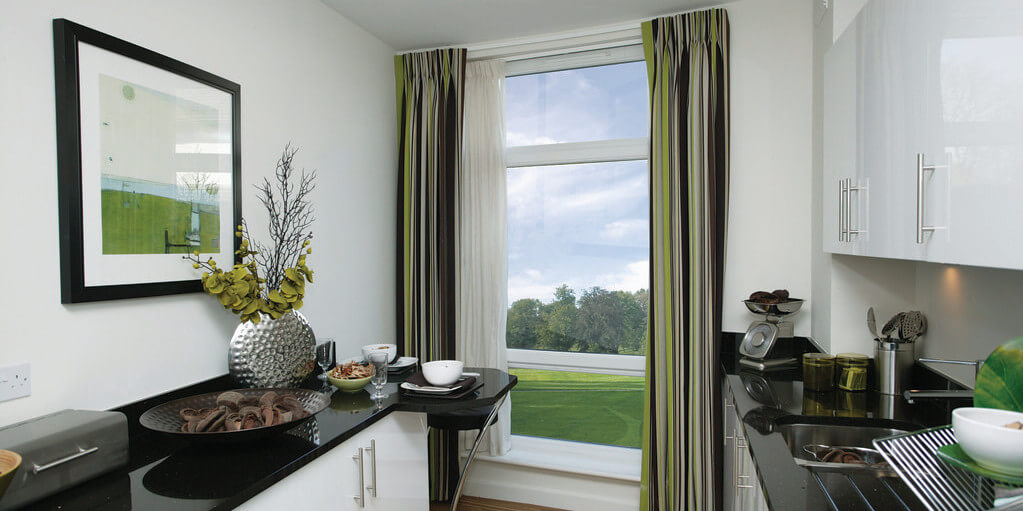
To meet tenant needs and site requirements, landlords can choose from different frame materials and type of window:
uPVC windows: widely used for cost effectiveness, good insulation and low maintenance
Aluminium windows: slimmer profiles, greater strength, ideal for multi‑storey or exposed sites
Casement windows: often preferred for good sealing and ease of operation
Tilt and turn windows: a unique inward-opening sash for buildings requiring high levels of natural ventilation that enables easy, safe cleaning from within.
Sash windows: useful in heritage or period properties, especially when matching existing aesthetics
Shelforce manufactures both UPVC and aluminium frames in‑house, ensuring each window frame and window glass component fits precisely for maximum performance. This “perfect fit” assembly reduces the risk of leaks, air ingress, cold air drafts or seal failures over time.
Are there challenges or risks to watch out for?
Even though new double glazed windows are highly beneficial, landlords should take care to avoid pitfalls. Poor installation can lead to gas leakage, seal failure or moisture ingress, while inappropriate specification for heritage properties in conservation areas can conflict with conservation rules. Overlooking ventilation requirements can compromise indoor air quality.
By working with an experienced manufacturer and supplier like Shelforce, landlords mitigate these risks — from design, compliance checking, manufacturing to aftercare.
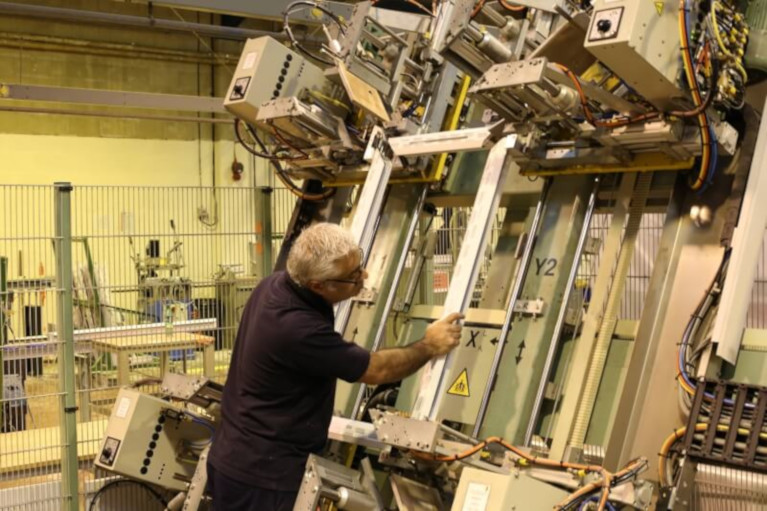
Specify doubled glazed windows on your next project
Landlords and housing providers looking to upgrade windows in their portfolio should partner with a manufacturer who understands the unique demands of the social housing sector.
At Shelforce, we specialise in the manufacture and supply of new double glazing, uPVC windows and aluminium windows for local authorities, ensuring regulatory compliance, durability and optimal thermal performance.
Contact our expert team today to discuss specifications for your next window replacement project. Let us help you deliver safer, more efficient homes that benefit tenants, landlords and communities alike.
Key takeaways
- A double glazed window is not just a comfort upgrade, it’s a strategic tool to manage energy, safety, health and cost.
- Well-designed double glazing reduces heat transfer, lowers energy bills, and curbs heat loss through windows.
- It also mitigates internal condensation, mould, damp and poor indoor air quality.
- Noise reduction and increased tenant comfort help reduce turnover and improve landlord reputation.
- When paired with compliant frames, gas fills (argon), spacer bars and proper sealing, double glazed systems support fire safety and regulatory compliance.
- The long‑term savings, reduced maintenance, tenant satisfaction and improved property value make it a compelling investment.
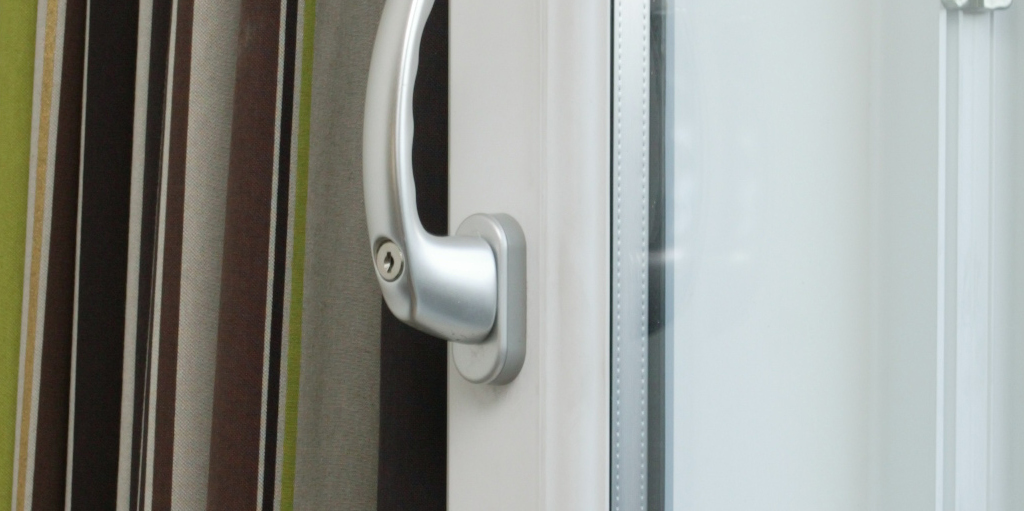
Frequently Asked Questions
Will double glazing solve mould problems entirely?
It greatly reduces condensation and damp triggers, but mould may persist if there is poor ventilation, structural leaks or tenant behaviour that traps moisture. Double glazing forms one critical part of a whole‑home approach.
Does double glazing increase property value?
Yes. New double glazing, properly installed and energy‑efficient, often contributes to higher property value in the UK market.
Are aluminium windows compatible with double glazing?
Absolutely. Aluminium frames are ideal in certain contexts, especially for large spans or high-rise buildings.

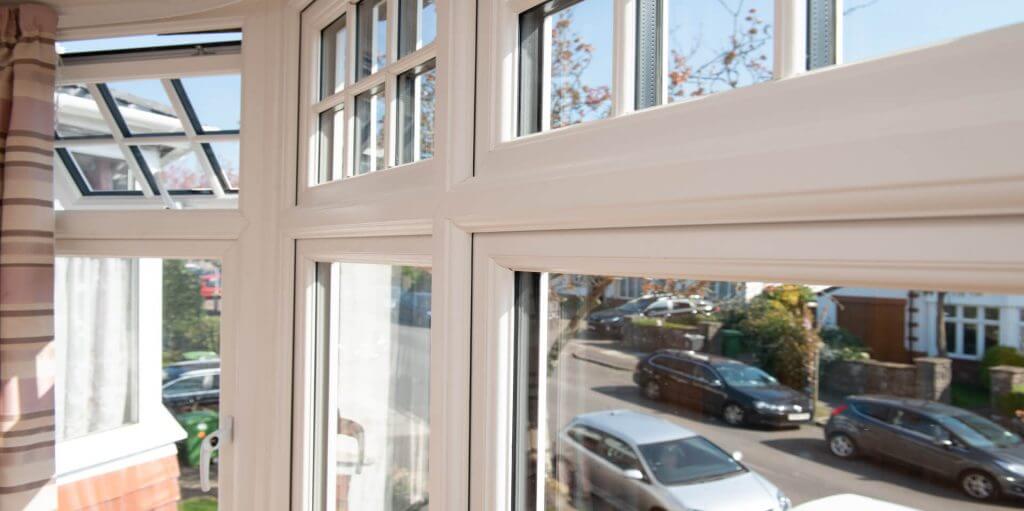


 >
>